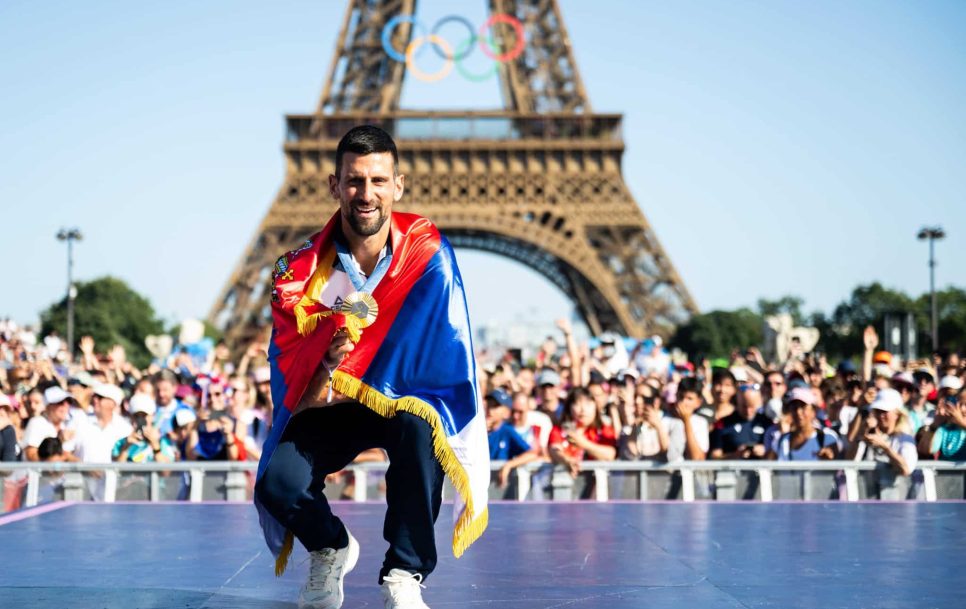6 things Paris 2024 will be remembered for
Au revoir, Paris. With the 2024 Summer Olympics officially in the books, it is time to reflect on the key points of interest. From Paris to Marseille to the island of Tahiti in the French Polynesia, it was an event to remember.
Those 16 days passed by in a flurry flash and yet left us with a sense of familiar calm. Much like EURO 2024 a month before, Paris reminded us what it should feel like. The parallels are unmistakable. After travelling the world for more than a decade since London 2012, the Olympics returned to familiar surroundings in Western Europe.
The French made it their mission to make it a party to remember. The venues were absolutely iconic, ranging from the Eiffel Tower (beach volleyball) via the Grand Palais (fencing and taekwondo) to the Palace of Versailles (equestrian and modern pentathlon). Almost everything was organized neatly and any security concerns felt almost exaggerated.
The love every French athlete experienced first-hand was truly special too, with many international athletes applauding the support as well. From Teddy Bear, the judo king Teddy Riner winning his third individual Olympic gold to swimmer Leon Marchand becoming the poster boy of Paris 2024 with five medals (four of them gold), the French did not disappoint. Even when they faltered, winning just one medal in athletics, the stands never backed down.
Sure, there were a few minor issues, mostly regarding The Seine – one of the few projects that did not really succeed. Spending more than 1.4 billion to clean a river banned for swimmers more than a century ago to prove a point? Surely, there would have been better (and more reasonable) solutions. However, organizing something so massive can not be done without setbacks.
In the end, they did host the triathlon swimming leg (after postponing it) as well as open-water marathon swimming (also postponed) competitions in The Seine. As feared, several athletes soon became ill with stomach infections after contact with unsafe bacteria. Lesson learned, hopefully. Playing God is never a good idea.
But these games will be remembered for the performances of athletes. For one beautiful evening at the Stade de France, the stars aligned for the Carribean. There must have been not more than an hour between Thea LaFond winning the women’s triple jump and Julien Alfred’s triumph in the women’s 100m; the first-ever Olympic medals for Dominica and Saint Lucia respectively.
Dominica is the smaller of the two neighbouring islands with just 73,000 people and they do not even have a proper athletics track. Saint Lucia with their 180,000 inhabitants feels gigantic in comparison. To top it off? Another one of their neighbours Grenada (125,000) celebrated a bronze in the men’s decathlon won by Lindon Victor that same day. Truly a one of a kind night for a very special corner of the world.
But the big fish did not disappoint either. Tennis majesty Novak Djokovic took his last shot at Olympic gold at 37 and delivered, being as close to faultless as humanly possible vs Carlos Alcaraz in the final. Belgian cyclist Remco Evenepoel, six days after coming third in the Tour de France, won a gold medal in the men’s trial and then went on to top it off with another in the road race, becoming the first man ever to do the Olympic double.
Cuban wrestler Mijain Lopez Nunez had not competed since the Tokyo Olympics three years ago, but the 41-year-old Greco-Roman wrestler returned for one last dance. And what a dance it was – his fifth straight Olympic gold at a single event sets him apart from every other individual athlete on Earth, surpassing even the likes of Michael Phelps.
And regarding Team USA, the men’s basketball team of course… How about placing a target on your back and then delivering as promised in true superhero fashion? The international field certainly feels closer than ever as proved by Serbia in the semi-finals, but The Avengers did not blink once. They knew what they had.
A 39-year-old LeBron James risked his legacy and deservedly won the tournament MVP, but it would not have been possible without Stephen Curry. The 36-year-old point guard from Akron, Ohio, put up otherworldly shots when it mattered most in both the semi-final and the final. No one had answers simply because no other player is in the same bracket.
And again we witnessed that professional athletes are not from some other planet. The most common image of Paris 2024 was probably that of Turkish shooter Yusuf Dikec, the silver-medallist at the 10m air pistol Mixed Team; the middle-aged grey-haired man without any protective gear, wearing a loose T-shirt over his 51-year-old belly. Normal glasses, left hand stationed firmly in his pocket.
The pose was later recreated by many Olympians, notably the pole vault champion Armand Duplantis, who also gave the most memorable morning interview of these games after a wild night out. He deserved to celebrate – and sometimes everyone does, even when not breaking world records.
Men’s high jump reigning champion Gianmarco Tamberi was hospitalised with kidney stones briefly before his event yet decided to participate; Egyptian fencer Nada Hafez took on the Olympics while seven months pregnant. “The most important thing in the Olympic Games is not to win but to take part,” reads the Olympic Creed. They did and won many hearts. Because they are made of flesh and blood just like the rest of us.







